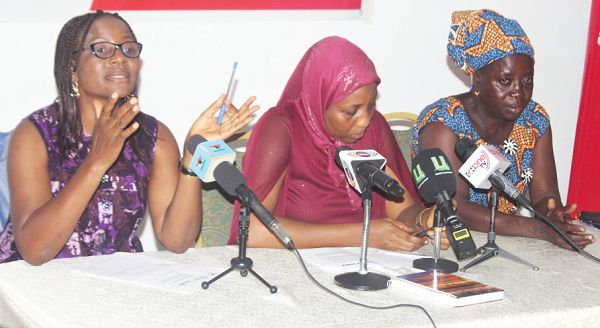
‘Capture unpaid care work in national data’
Salomey Appiah-Adjei
4 minutes read
ActionAid Ghana, a civil society organisation, has called on the government to recognise care work mostly performed by women at home as part of the national productivity statistics.
According to the organisation, majority of women and some men spent long hours to cook, clean and care for children, the sick and aged, yet these are not captured in the Gross Domestic Product (GDP) or national data on productivity in the country.
“Unpaid care work is perceived to be less valuable than paid work and it is ignored and not considered to be work even by the women and men who engage in and benefit directly from these activities,” it said.
This came up during a national dialogue to discuss the unpaid care work in the Ghanaian setting. The event, which was organised by ActionAid Ghana in Accra last Thursday, brought together various stakeholders to deliberate on how to recognise unpaid care work and inculcate it in the various policies.
“Unpaid care work invisible”
The Country Director of ActionAid, Dr Sumaila Abdul-Rahman, in a speech read on his behalf by the Women’s Rights and Campaigns Manager,
Ms Margaret Brew-Ward, said the issue of unpaid care work was not limited to women in rural communities but every woman, irrespective of her employment or marital status, age or income level.
He said statistics by the Ghana Statistical Service showed that a typical Ghanaian woman worked on the average 13 hours per day, while only 40 per cent of her day’s work was paid.
Due to the fact that care work was invisible on national statistics and less valued, Mr Abdul-Rahman said local and national authorities failed to design social and economic policies that could reduce the burden of women whose primary responsibility was the unpaid care work.
“Furthermore when care work, including both domestic chores and caregiving activities is carried out within one’s household, it is generally unpaid, but when it is done by other people’s households or in public and private institutions, it is paid, although the pay may be low,” he stated.
He noted that turning a blind eye to unpaid care work which was mostly the responsibility of the women and girls hampered efforts to address inequality and reduce poverty.
Recognition
A Project Manager at Actionaid, Ms Azumi Mesuna, said the campaign was not to call on husbands to pay their wives for the chores they performed at home but rather recognise that those chores were work.
She noted that if a woman was working from home, she needed to have leisure time to rest.
“Recognition can take several forms, including provision of compensation for the work, recognising it when determining other benefits, such as pension payments or measuring unpaid care work in national statistics,” she stated.
Reduction
Additionally, Ms Azumi said the burden of unpaid care work must be reduced for the women, girls and men.
“This can happen through the service being provided in a different way. For example, women’s child care responsibility would be reduced if government provided accessible and affordable childcare services.
“Similarly, unpaid care work would be reduced if services were provided closer to where people live and work so that less time is spent accessing water facilities and health care and the like,” she stated.
Redistribution
Ms Mesuna further said unpaid care work must be more fairly shared among different people.
“One example of this is where male household members take on a greater share of housework and child care. Another example is where government takes on a greater share of healthcare provision by setting up an effective public healthcare system”, she noted.
The President of the National Women Farmers Movement of Ghana, Ms Veronica Gbande, urged the government to provide day care centres for women especially those in the informal sectors to enable them to take their children to work.
She said the issue of unpaid care work had a toll on young girls, especially in the rural communities where the older girls were asked to drop out of school to help their mothers take care of the younger ones at home.
